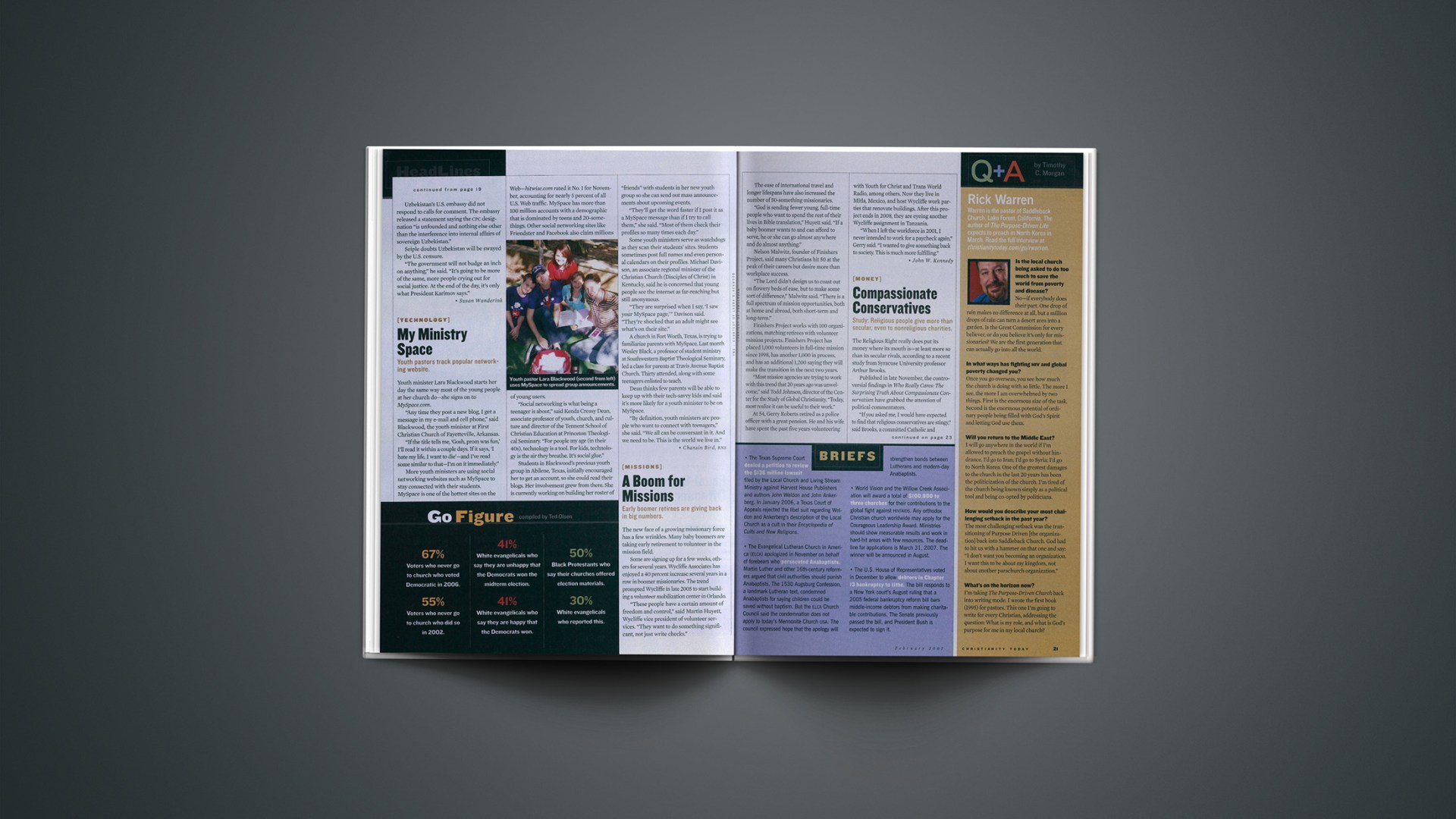The Religious Right really does put its money where its mouth is—at least more so than its secular rivals, according to a recent study from Syracuse University professor Arthur Brooks.
Published in late November, the controversial findings in Who Really Cares: The Surprising Truth About Compassionate Conservatism have grabbed the attention of political commentators.
“If you asked me, I would have expected to find that religious conservatives are stingy,” said Brooks, a committed Catholic and political independent. “That’s what academics think. That’s what we are told all the time.”
What he found instead was the Religious Right gives more in “every measurable way,” from writing checks to volunteering time to donating blood.
Brooks attributes the difference to four factors—church attendance, two-parent families, Protestant work ethic, and distaste for government social services. But he said church attendance is by far the most telling. “Religious liberals and religious conservatives give at the same rate,” he said. “What you find is more religious conservatives than religious liberals.”
Ninety-one percent of regular church attendees give to charity each year, compared with 66 percent of those who said they do not have a religion. The gap adds up—the faithful give four times more money per year than their secular counterparts. While most of that money is given to churches, religious people also give more to secular charities, such as the Red Cross or their alma mater.
Religious people also donate twice as much blood and are more likely to “behave in compassionate ways towards strangers,” Brooks said. For example, they are much more likely to return extra change to a cashier when they are accidentally given too much.
Generous giving is part of the religious conservative identity, according to sociologist Tony Campolo. “The Religious Right, by conviction, is convinced that helping the poor is something that should be done individually or by the church,” said Campolo. “[They say that] asking the state to do it is wrong.”
But religious conservatives might not want to pat themselves on the back quite yet. Christian research organization Empty Tomb Inc. said evangelicals gave away 6.7 percent of their income in 1968. By 2004, that figure had dropped to 4.4 percent, but growing attendance and rising incomes have kept many churches from feeling the pinch. At the same time, more money is staying within the church to pay for things like music and technology. Evangelical churches on average devote only about 2 percent of their budgets to missions.
Copyright © 2007 Christianity Today. Click for reprint information.
Related Elsewhere:
Arthur Brooks’s book, Who Really Cares, (available from ChristianBook.com and other retailers) is based on his studies of charity giving. An excerpt and sample statistics from the book are available on his website.
Empty Tomb Inc.’s statistics on church giving through 2003 are available on their website.










